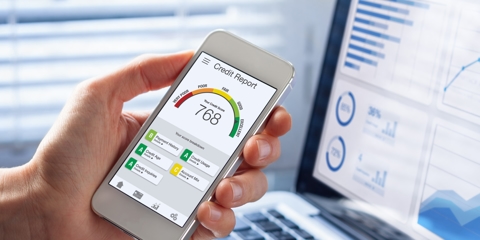Chapter 7 & Chapter 13 bankruptcies are the two most common forms of personal bankruptcy in the U.S. They each have pros and cons, and which one is right for you depends upon a number of factors such as your income, assets, and debts. You can choose between the two forms of bankruptcy if you meet certain eligibility requirements. However, you may only qualify for one type of bankruptcy and may therefore not have a choice.
Chapter 7
Chapter 7 is a liquidation bankruptcy. It will wipe out your unsecured debts such as cash advance loans, credit card debts, garnishments, judgements and medical bills. However, if you have too much disposable income, you may be disqualified from filing a Chapter 7, and you may be forced to file a Chapter 13 instead.
After filing a Chapter 7, a bankruptcy trustee is appointed to handle your case. Any nonexempt property must be sold and the money used to pay back creditors. If you have large amounts of nonexempt assets, you may also choose not to file a Chapter 7 so that you can keep your assets. Most individuals who file a Chapter 7 have a low level of income, few assets, and need to get rid of their unsecured debts.
Chapter 13 bankruptcies are reorganizations in which your debts are reorganized, and you are put on a repayment plan. It allows you to catch up on missed payments while simultaneously making current payments. Chapter 13 bankruptcies are normally best for those debtors with regular income who can pay back some of their debts, and who have assets they would like to keep.
Pro’s and Con’s
There are pros and cons to Chapter 7 & Chapter 13. Chapter 7 bankruptcies are much faster, and are typically over in six to ten months. Chapter 13 bankruptcies last until all payments are made under the plan, which is typically three to five years. Therefore, if the speed of the bankruptcy is important to you, you may choose to file a Chapter 7.
Your income and assets matter too when filing Chapter 7 & Chapter 13. To file a Chapter 7, you must pass a means test which shows that you are low income. To file a Chapter 13, there are limits on how much unsecured debt and secured debt you can have.
One of the biggest benefits to a Chapter 7 is that it is over quickly, and allows debtors to obtain a fresh start. On the other hand, a Chapter 13 takes a long time, but allows debtors to keep their assets and to catch up on their mortgage payments, car payments, and other payments.
Each type of bankruptcy also has drawbacks. The biggest disadvantage for a Chapter 7 is that the nonexempt property is sold; although the debtor may want to keep that property. One of the biggest drawbacks for a Chapter 13; is that the debtor must make monthly payments to the trustee for years. Also, in a Chapter 13 typically the debtor has to pay back a portion of the unsecured debts, which would be dischargeable in a Chapter 7.
You should discuss your bankruptcy with an attorney to determine which type, if any, is right for your situation. If you are considering bankruptcy, call the Atlanta bankruptcy attorneys at Holston & Huntley at (404) 620-3337. Our attorneys are experienced and can help find the right solution for you! Call us today to schedule a FREE consultation.





